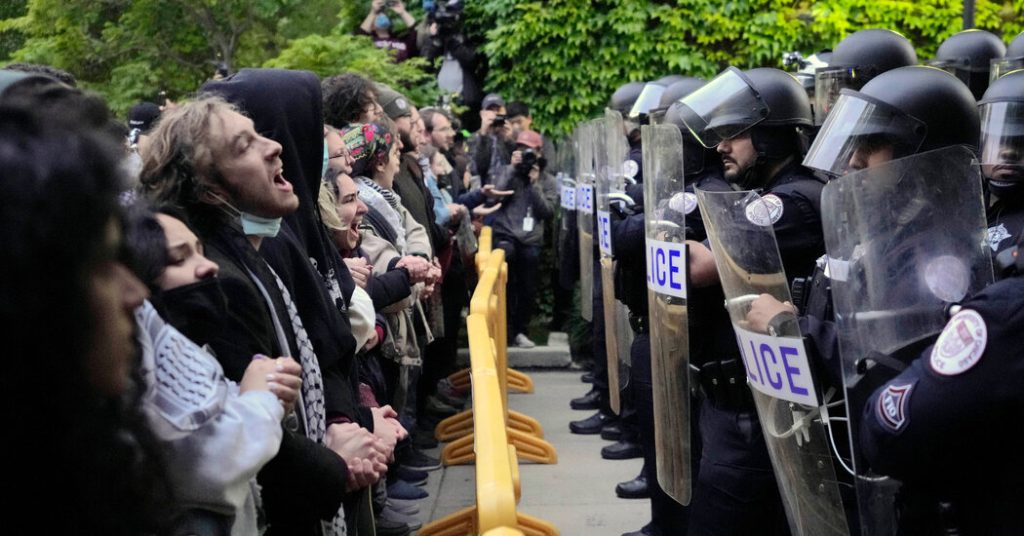Pro-Palestinian protesters at the University of Chicago stormed the Institute of Politics building, causing damage and confronting former Senator Heidi Heitkamp. The group occupied the building to protest the university’s connections to Israel, with bystander videos showing protesters climbing through windows as the crowd cheered. After being cleared out by police, protesters remained outside chanting and drumming. University officials stated that while they support the right to protest, actions cannot jeopardize safety, disrupt operations, or involve property destruction.
The Institute of Politics, where the demonstration took place, is in close proximity to the University of Chicago Hillel and Rohr Chabad, where Sabbath dinner was being held. Counterprotesters with Israeli flags were present, and rock music was played to drown out chants. A sign on the building was covered with a placard calling for a permanent cease-fire, and a list of demands, including the abolition of the university, was displayed. The tension continued as the protest persisted, with both sides making their voices heard.
In a similar incident at the University of Pennsylvania, protesters attempted to occupy Fisher-Bennett Hall, leading to arrests and police intervention. The hall is near the site of a previous protest encampment that was cleared by police. These events underscore the intense emotions and passionate beliefs surrounding the Israeli-Palestinian conflict on college campuses across the United States. The conflict between pro-Palestinian and pro-Israeli groups has led to controversial and disruptive actions, sparking discussions about freedom of expression and safety on campus.
University officials emphasized the importance of upholding the rights of protesters while also maintaining safety and order on campus. The organization’s founder, David Axelrod, was present for a board meeting at the institute during the protest. The clashes highlight the challenges faced by universities in managing demonstrations and protests, balancing the need for free expression with the responsibility to ensure a safe and secure environment for all members of the academic community.
As tensions continue to rise regarding the Israeli-Palestinian conflict, protests on college campuses have become increasingly common. The incidents at University of Chicago and University of Pennsylvania are just a few examples of the ongoing activism and demonstrations taking place across the country. Both sides are passionate about their beliefs and are willing to take bold actions to make their voices heard. The events serve as a reminder of the complex issues at play and the challenges universities face in navigating these highly charged debates while upholding the principles of academic freedom and community safety.








